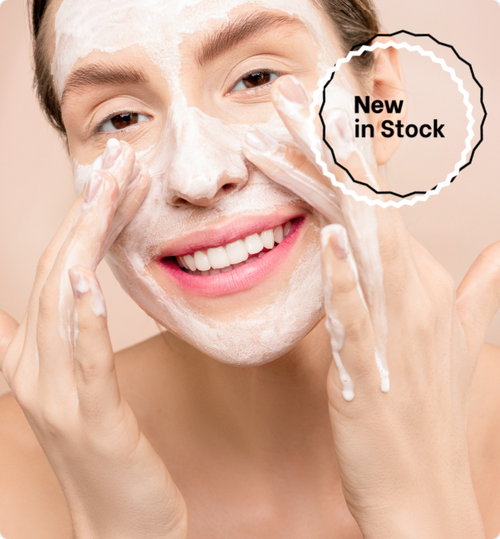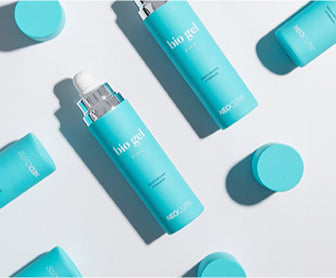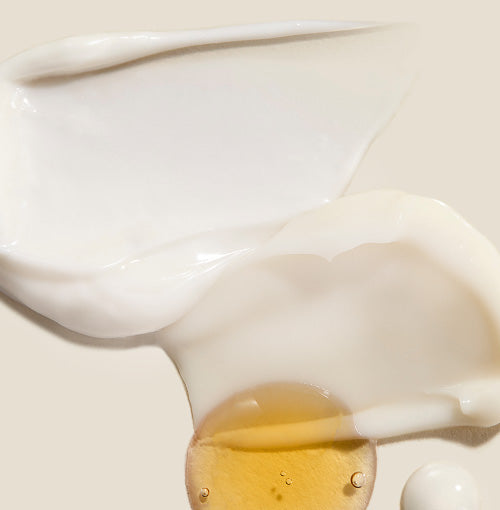Propylene Glycol in Skincare: Everything You Need to Know
As you're scanning the label of your latest skincare interest, you see something you've seen many times before but never quite knew what it was or why it was there... propylene glycol. Skincare of all kinds contains this mystery ingredient, but few know much about it. This blog will explore everything you need to know about propylene glycol, from its origins to its uses in skincare products.
What is Propylene Glycol?
propylene glycol is a clear, odorless liquid commonly used in skincare and personal care products as a humectant, solvent, and viscosity agent. Chemically, it is a type of alcohol, specifically a diol or a glycol, which means it has two hydroxyl groups (-OH) in its molecular structure.
What is it made from?
propylene glycol is produced by hydrating propylene oxide, a petroleum-based raw material. It is a synthetic compound widely used in various industries, including food, pharmaceuticals, cosmetics, and personal care.
Where is Propylene Glycol Sourced from?
Propylene glycol is produced globally, primarily in North America, Europe, and Asia. It is sourced from petrochemical feedstocks, a byproduct of oil and natural gas refining. Some companies use natural sources such as vegetable glycerin to produce propylene glycol, but this method is uncommon.
What Kinds of Skincare Products Have it?
Propylene glycol is a versatile ingredient found in a wide range of skincare products, including cleansers, toners, serums, moisturizers, and even sunscreens. It is often used as a humectant to help the skin retain moisture and a solvent to dissolve other ingredients.
A humectant is an ingredient that helps attract and retain moisture. In skincare products, humectants are used to hydrate and plump the skin, making it look and feel softer, smoother, and supple. Humectants work by drawing water from the environment or deeper layers of the skin, and then binding it to the skin's surface. This helps to increase the skin's water content, improving its barrier function and reducing transepidermal water loss (TEWL). Some common humectants used in skincare include glycerin, hyaluronic acid, urea, and of course, propylene glycol.
The Benefits of Propylene Glycol in Skincare
Propylene glycol offers several benefits when used in skincare products. It is an effective humectant, which means it helps the skin retain moisture. This can be especially beneficial for anyone with dry or dehydrated skin, as it can help improve the skin's texture and appearance.
Propylene glycol is also a quality solvent, able to dissolve other ingredients and help them penetrate the skin more effectively. This can enhance the effectiveness of other active ingredients in skincare products, such as vitamins or antioxidants.
The Cons of Propylene Glycol in Skincare
While rare, no ingredient is perfect for everyone. Some people have reported the below potential drawbacks of propylene glycol to be aware of when choosing the best moisturizing ingredients for you:
- Skin irritation: Some people may be allergic to propylene glycol, which can cause skin irritation, redness, or itching. In rare cases, it can cause contact dermatitis, a type of skin inflammation.
- Sensitizing: It may also sensitize the skin, making it more vulnerable to other irritants.
- May disrupt the skin barrier: propylene glycol can penetrate the skin and may interfere with the natural barrier function of the skin, leading to increased sensitivity or dryness.
-
Environmental concerns: propylene glycol is derived from petrochemical feedstocks, which can have negative environmental impacts. It is also not biodegradable and can accumulate in the environment.
These die effects are rare, but if you have a history of sensitivities to these kinds of ingredients, then it is a good idea to consult with your dermatologist or patch test.
Who could benefit from using skincare with this ingredient in it?
Propylene glycol can offer several benefits to different skin types but can be particularly helpful for people with dry or dehydrated skin. Here are some ways in which propylene glycol can benefit different skin types:
- Dry skin: propylene glycol is a humectant, which means it helps to attract and retain moisture in the skin. For people with dry skin, using products containing propylene glycol can help to hydrate and soften the skin, making it look and feel smoother.
- Dehydrated skin: Dehydrated skin lacks water, which can cause it to feel tight, flaky, or rough. Propylene glycol can help to replenish the skin's moisture levels, improving its texture and reducing the appearance of fine lines.
- Sensitive skin: propylene glycol has a low potential for skin irritation and is generally well-tolerated by people with sensitive skin. It can help to reduce inflammation and soothe the skin, making it a good option for people with rosacea, eczema, or other skin sensitivities.
- Aging skin: As we age, our skin tends to lose moisture, making it look dull and less supple. Propylene glycol can help to improve the skin's hydration levels, making it look plumper and more youthful.
Everyone's skin is different, and what works for one person may not work for someone else. If you have any concerns about using skincare products containing propylene glycol, consider reaching out to our on-staff cosmetic surgeon and his expert team of skincare professionals for free skincare advice.







Leave a comment